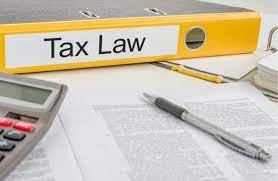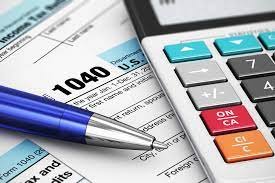Professional Tax under The Laws Of the Government of Punjab
Professional Tax under the Government of Punjab
Professional Tax is a significant component of the fiscal framework in the Government of Punjab. This tax is levied on individuals engaged in various professions, trades, and employment, contributing to the state’s revenue while also serving as a mechanism to regulate and formalize professional activities. In this comprehensive guide, we delve into the intricacies of Professional Tax under the laws of the Government of Punjab.
Understanding the Foundations of Professional Tax
Concept and Scope:
Professional Tax is a direct tax levied on individuals engaged in professions, trades, and employment. It is a state-level tax, and each state in India has the authority to enact its own Professional Tax laws. In Punjab, the local authorities regulate and enforce the tax in adherence to the legal framework established by the state government.
Applicability:
The tax applies to a broad spectrum of professions, trades, and employments, encompassing salaried employees, self-employed professionals, and business owners. The rates and thresholds may vary based on the income brackets and the nature of professional engagement.

Legal Framework Governing Professional Tax in Punjab
Punjab State Tax on Professions, Trades, Callings, and Employments Act, 1975:
The cornerstone of Professional Tax in Punjab is the Punjab State Tax on Professions, Trades, Callings, and Employments Act, 1975. This legislation empowers the state to impose and collect taxes on various classes of individuals engaged in specified professions and trades.
Regulatory Authorities:
The Act establishes the framework for the levy and collection of Professional Tax, with designated authorities overseeing its implementation. The administrative machinery ensures adherence to the provisions, collection of taxes, and resolution of disputes, if any.
Structure of Professional Tax in Punjab
Tax Slabs and Rates:
Professional Tax in Punjab is structured in slabs, with varying rates based on income brackets. Individuals falling into higher income categories typically incur a higher tax liability. This progressive structure aims to distribute the tax burden equitably among different income groups.
Exemptions and Deductions:
The legislation also provides for certain exemptions and deductions. Individuals falling into specific categories, such as senior citizens or persons with disabilities, may be eligible for concessions. Understanding these provisions is essential for taxpayers and employers responsible for deducting and remitting the tax.
Compliance and Obligations for Taxpayers
Registration Requirements:
Individuals falling within the purview of Professional Tax in Punjab must register themselves with the appropriate authorities. As responsible entities, employers are required to deduct the tax at source from the salaries of employees falling within the taxable bracket.
Filing and Payment:
Regular filing of returns and timely payment of Professional Tax are fundamental obligations. This involves accurately computing the tax liability, deducting the applicable amount from employees’ salaries, and remitting the collected taxes to the designated authorities within the stipulated time frames.
Enforcement and Penalties
Vigilance and Audits:
The regulatory authorities in Punjab actively monitor compliance through audits and vigilance measures. This ensures that individuals and employers adhere to the provisions of the Act, facilitating the smooth collection of Professional Tax.
Penalties for Non-Compliance:
Non-compliance with Professional Tax regulations in Punjab may result in penalties. These penalties can include fines for late filing, interest on delayed payments, and legal consequences for willful evasion. Understanding and meeting obligations in a timely
Taxing from a Person Engaged in More Than One Profession
Whenever an individual is involved in multiple professions, trades, callings, or employment, the tax liability arises under section 3(2) of the Punjab Finance Act 1977. However, it’s important to note that this individual is obligated to pay tax only in respect of one specific profession, trade, calling, or employment, as per the provisions of the Act.
The Procedure of Survey
Surveys play a pivotal role in assessing and collecting professional tax. Traditionally, inspectors conducted surveys through personal visits to allotted circles, ensuring authenticity. While this method remains in use due to its reliability, recent advancements have introduced new techniques. These include leveraging the Directory of Industrial Establishments in Punjab, Yellow Pages, SECP’s list of registered companies, and data from various chambers of commerce and educational departments.
Serving of Notices
To initiate the professional tax assessment process, three types of notices are sent to assessees:
First Notice:
- Requires the assessee to provide essential information and documents within a specified timeframe.
- Information includes the office opening date, incorporation certificate (if applicable), paid-up capital, import/export details, the value of work done or services provided, the number of employees, past income tax returns, and professional tax receipts.


Second Notice:
- A reminder of the first notice, emphasizing the expiry date.
Third Notice:
- Serves as a final call notice, providing the assessee with a last opportunity to be heard. Special notices may also be served.
Final Call Notice and Demand Notice
Final Call Notice:
- Section 4(2) of the Punjab Profession & Trade Tax Rules 1977 empowers the Assessing Authority District Excise & Taxation Officer to decide a matter ex parte with maximum taxation and a 100% penalty.
Demand Notice:
- Issued under Section 6 of the Punjab Professions and Trade Tax Rules 1977 against assesses who are already assessed or ex parte.
- If the taxpayer fails to pay the assessed tax, the procedure under the Land Revenue Act, 1967, via Section 6 of the Punjab Finance Act, 1977, is initiated.
- This may involve preliminary notices before arrest warrants or attachments under sections 81/82 of the Punjab Land Revenue Act, 1967.
The Appeal in Case of Objection
Within 30 days of receiving the assessment, the assessee has the right to appeal to the Director of Excise & Taxation under section 4(3) of the Punjab Profession & Trade Tax Rules, 1977. The Appellate Authority can either order the charging of the whole tax or its refund.
Demand Register
Under Section 11 of Punjab Professions & Trade Tax Rules, 1977, all paid amounts and arrears are diligently recorded in Form P.F.T-3, providing a comprehensive record of all assessed units.
Taxing Year, Payment Duration, and Crediting of Amount
Taxing Year:
- According to Section 1(3) of the Punjab Finance Act, 1977, the taxing year runs from 1st July to 30th June (fiscal year).
Payment Duration:
- Before the 31st day of August of every calendar year, individuals liable to pay the tax must furnish their name, address, occupation, or trade details to the District and Taxation Officer.
Crediting of Amount:
- The tax is credited to the nearest treasury using Form P.R.T-2. Alternatively, the amount can be sent to the District Excise and Taxation Officer via a postal order or a cheque drawn on the State Bank of Pakistan, National Bank of Pakistan, or any other bank with clearing accounts.
Deleting of Demand
Taxpayers ceasing engagement in a trade, profession, employment, or calling on which they are liable to pay tax are required to notify the District Excise and Taxation Officer within 30 days of discontinuing such activities, as per Section 10 of the Punjab Professions & Trade Tax Rules, 1977.
For more information regarding the taxation system of Pakistan, please contact us for a free consultation!
Modes of Professional Tax
Each head of Professional Tax is evaluated based on the following criteria:
Companies | On Paid Up Capital |
Factories | On Numbers of Employees |
Commercial Establishments | On Number of Employees except retailers and Wholesalers |
Importers and Exporters | On the Value of Goods Imported or Exported |
Government Contractors | On the Value of Services Given |
Government Property Developers | On the Value of Contract |
Service Providers | Fixed |
Contact Us
Registered companies with a paid-up capital under the Companies Ordinance, 1984
Class of Persons | Rate of Tax Per annum |
Up to PKR 5 million | PKR. 10,000/- |
Exceeding PKR 5 million but not exceeding PKR 50 million | PKR. 30,000/- |
Exceeding PKR 50 million but not exceeding PKR 100 million | PKR. 70,000/- |
Exceeding PKR 100 million but not exceeding PKR 200 million | PKR. 100,000/- |
Exceeding PKR 200 million | PKR. 100,000/- |
24/7 Customer Support
If you want to know anything about our services, you can contact us through Phone, WhatsApp.
Karachi Office
Islamabad Office
Ownership of factories by persons other than companies in accordance with the Factories Act of 1932
Class of Company | Rate of Tax Per annum |
Employees not exceeding 10 | PKR. 1500/- |
Employees exceeding 10 but not exceeding 25 | PKR. 5,000/- |
Employees exceeding 25 | PKR. 7,500/- |
Owners of businesses with 10 or more employees other than companies
Class of Persons | Rate of Tax Per annum |
Within Metropolitan and Municipal Corporation limits | PKR. 6,000/- |
Others | PKR. 4,000/- |
All other commercial establishments other than wholesalers and retailers | PKR. 2,000/- |
Persons involved in various professions and providing a variety of services.
Class of Persons | Rate of Tax Per annum |
Medical consultants or specialists/dental surgeons | PKR. 5,000/- |
Registered medical practitioners | PKR. 4,000/- |
Others including Homeopaths, Hakeems, and Ayurvedic | PKR. 3,000/- |
Within Metropolitan and Municipal Corporation limits | PKR. 1,000/- |
Within Metropolitan and Municipal Corporation limits | PKR. 6,000/- |
Others | PKR. 4,000/ |
Consultancy Services for Management and Taxes, Engineering, Technical and Scientific Experts.
Class of Persons | Rate of Tax Per annum |
Within Metropolitan and Municipal, Corporations limit | PKR. 6,000/- |
Others | PKR. 2,000/- |
Lawyers | PKR. 1,000/- |
Members of Stock Exchanges | PKR. 10,000/- |
Importers and exporters of goods who imported or exported goods of the following value during the previous year.
Class of Persons | Rate of Tax Per annum |
Exceeding PKR 1 lac but not exceeding PKR 1 million | PKR. 2,000/- |
Exceeding PKR 1 million but not exceeding PKR 5 million | PKR. 3,000/- |
Exceeding PKR 5 million | PKR. 5,000/- |
An individual practicing a profession, trade, calling, or employment either completely or partially within Punjab Province was assessed to pay income tax during the prior financial year PKR. 200/-. During the preceding financial year, contractors, builders, and property developers who supplied goods, commodities, and services to a Federal or Provincial government, a company, a factory, a commercial establishment, or an autonomous or semi-autonomous organization or a local authority are liable to pay the income tax.
Class of Persons | Rate of Tax Per annum |
Not exceeding PKR 1 million | PKR. 1,000/- |
Exceeding PKR 1 million but not exceeding PKR 10 million | PKR. 6,000/- |
Exceeding PKR 10 million but not exceeding PKR 50 million | PKR. 10,000/- |
Exceeding PKR 50 million | PKR. 20,000/- |
For money changers:
Class of Company | Rate of Tax Per annum |
Within Metropolitan and Municipal Corporation limits | PKR. 6,000/- |
Others | PKR, 2,000/- |
MotorCycle/Scooter dealers:
Class of Company | Rate of Tax Per annum |
Within Metropolitan and Municipal Corporation limits | PKR. 10,000/- |
Others | PKR. 6,000/- |
Motor Vehicle Dealers and Real Estate Agents
Class of Company | Rate of Tax Per annum |
Within Metropolitan and Municipal Corporation limits | PKR. 20,000/- |
Others | PKR. 10,000/- |
Recruiting Agents
Class of Company | Rate of Tax Per annum |
Within Metropolitan and Municipal Corporation limits | PKR. 20,000/- |
Others | PKR. 10,000/- |
Carriage of Goods and Passengers by Road
Class of Company | Rate of Tax Per annum |
Within Metropolitan and Municipal Corporation limits | PKR. 4000/- |
Others | PKR. 2,000/- |
Health Clubs, Gymnasiums & Others
Class of Company | Rate of Tax Per annum |
Within Metropolitan and Municipal Corporation Limits | PKR. 4,000/- |
Others | PKR. 2,000/- |
Jewellers, Departmental Stores, Electronic Goods Stores, Cable Operators, Printing Presses, and Pesticide Dealers | PKR. 2,000/- |
Tobacco Vendors – Wholesalers | PKR. 4,000/- |
Franchisee, Authorized Dealers/Agents and distributers | PKR. 5,000/- |
Property Developer/Builders & Marketing Agent/Company engaged in the development marketing and management of residential, commercial, or industrial. | PKR. 50,000/- |
Hotels, Hostels (except hostels owned and operated by an educational institute by itself) /Guest House/ Motels/Resorts providing loader facility | PKR. 5,000/- |
Restaurants / Eateries / Fast Food Point / Ice Cream Parlors / Bakeries / Confectioners / Sweet Shops with air conditioner facility | PKR. 5,000/- |
Taxing from a person engaged in more than one profession
Whenever a person is engaged in more than one profession, trade, calling, or employment, he must pay the tax under section 3 (2) of the Punjab Finance Act 1977 only in respect of one such profession, trade, calling, or employment.
The procedure of Survey
Surveys were conducted primarily by personal visits by the Inspector to the allotted circles, which is a conventional, but very authentic, source of survey and is still in use due to the mobility of the units. Recently, however, new methods have been adopted.
- Directory of Industrial Establishments Punjab
- Yellow Pages
- SECP List of registered companies
- Lists from Chamber of Commerce
- Lists from Educational Departments etc.
- Serving of Notices
Below are the three types of initial notices sent to assessees:
First Notice
For the assessment of tax under section 3 of Punjab Finance Act 1977, as amended in 1999 and 2000, the assessee is required to provide the following information and documents within the above-mentioned timeframe.
- Date of opening of the office with documentary evidence
- Photocopy of incorporation certificate if it is an incorporated company
- Paid-up capital of the company with documentary evidence i.e. form “A” acknowledged by SECP
- Value of import/export during the years to be taxed with documentary evidence (P-Copy of Income Tax Returns for the said years)
- Year-wise value of work done/Services/Supplied goods to the Federal/Provincial/Semi-Government department or a company or a Factory or a commercial establishment or an autonomous or semi-autonomous or semi-autonomous organization or any local authority, with documentary evidence
- Number of employees
- Ist and last income tax returns acknowledged by Income Tax Department
- Professional Tax receipts if paid any during last years
Second Notice
A reminder of the first notice, which expired on the specified date.
Third Notice
The assessee is reminded of the above two notices and has a final opportunity to be heard. Additionally, some Special Notices are served.
Final Call Notice
Punjab Profession & Trade Tax Rules 1977, Section 4 (2), gives the Assessing Authority District Excise & Taxation Officer the right to decide a matter exparte on maximum taxation with 100% penalty.
Demand Notice
Under Section 6 of the Punjab Professions and Trade Tax Rules 1977, demand notice is issued against assesses who are already assessed or exparte, within 30 days of serving the notice to the assessee. If the taxpayer fails to pay the assessed tax, the following procedure is adopted under the Land Revenue Act, 1967, via Section 6 of the Punjab Finance Act, 1977. Preliminary notice before arrest warrants or attachments under section 81/82 of the Punjab Land Revenue Act, 1967.
Arrest Warrants
Attachment orders under the Punjab Land Revenue Act, 1967
The appeal in Case of Objection
Within 30 days of receiving the assessment, the assessee can appeal to the Director Excise & Taxation pursuant to section 4 (3) of the Punjab Profession & Trade Tax Rules, 1977, and the Appellate Authority can order to charge the whole tax or refund it.
Demand Register
Under Section 11 of Punjab Professions & Trade Tax Rules, 1977, all the paid amounts, as well as arrears, are recorded in Form P.F.T-3 in respect of all assessed units.
Taxing Year
According to section 1 (3) of the Punjab Finance Act, 1977, the taxing year runs from 1st July to 30th June (fiscal year).
Payment Duration
Before the 31st day of August of every calendar year, every person liable to pay the tax must provide to the District and Taxation Officer his name, address, occupation, or trade calls.
Crediting of Amount
The tax shall be credited to the nearest treasury in Form P.R.T-2 or the amount shall be sent to the District Excise and Taxation Officer by a postal order or by cheque drawn on State Bank of Pakistan, National Bank of Pakistan, or any other bank having clearing accounts with any of these banks.
Deleting of Demand
Taxpayers who cease to engage in a trade, profession, employment, or calling on which they are liable to pay tax shall notify the District Excise and Taxation Officer, under section 10 of the Punjab Professions & Trade Tax Rules, 1977, within 30 days of discontinuing such trade, profession, employment or calling.
For more information regarding the taxation system of Pakistan, please contact our representative for a free consultation!
